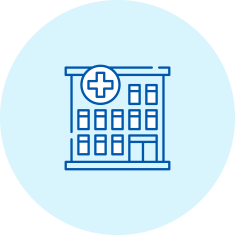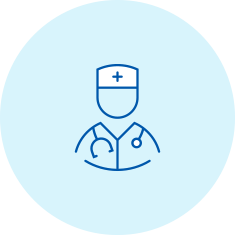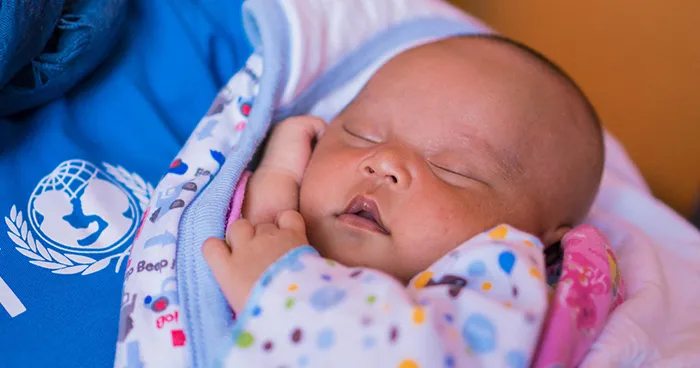Meet Baby Nahawa from Sounkala, Mali
Baby Nahawa was born on February 26, 2018 to Kadidia Sangaré, 37 and her husband Bokolon Koné, 48 in Sounkala, Mali. She was one of the 30 million babies born every year who require specialized or intensive care; born a week premature, she weighed only 2.6 pounds at delivery.
Kadidia and Bokolon live in the village of Sounkala, Yiridougou commune. The family are rice and sesame farmers, as well as occasional artisanal goldminers. Nahawa is Kadidia’s 10th child; her first four babies were stillborn and another died after contracting tetanus because Kadidia was not vaccinated. She didn’t have any antenatal consultations during her four previous pregnancies, nor during her pregnancy with Nahawa, during which she would have been vaccinated against tetanus.
For every child, many days of firsts
Let’s end preventable newborn deaths
Together, we can end preventable newborn deaths in our lifetime.
To save newborn lives around the world, UNICEF is calling on all governments, healthcare workers, communities and families to make universal health coverage a reality.
As you read this, 7,000 babies who are born today will not survive their first 24 hours outside their mother’s womb. And every year, a total of 2.6 million babies die before they turn one month old.
Newborn deaths are far too common despite global progress to reduce child mortality. The most dangerous time of a child’s life is her birth and the first 28 days that follow.
We know the world has the tools and treatments to stop preventable newborn deaths. But life-saving help is still not reaching those who need it most.
Help us end preventable newborn deaths by supporting access to the following FOUR priorities:

1. Functional health facilities with electricity, running water, soap and blankets.

2. Health workers who are trained and equipped with the right tools.

3. Life-saving medicines and equipment, including basics like antibiotics, antiseptics, oxygen and thermometers.

4. Knowledge and support that empowers her to demand and receive quality healthcare.
You can provide life-saving aid for newborn babies today with a gift of:
- $9 can help to buy a baby blanket.
- $28 can help to buy a newborn kit
- $37 can help to buy a reusable neonatal ventilation bag and mask to help resuscitate a baby.
Your donation will help support UNICEF programs that provide education facilities, health support, clean water and vaccinations to newborn babies, infants and children around the world where the need is greatest.
Take action today to save newborn lives with UNICEF Canada!
- Donate to UNICEF Canada to support our highest priorities for children
- Watch and share this moving video on social media
- Buy a UNICEF Survival Gift to help a newborn get the best possible start in life
Your support goes the farthest with UNICEF Canada.
How are Canadians helping to save newborns around the world?
UNICEF stands for every child, everywhere, as the world’s farthest-reaching humanitarian organization for children. We know that Canadians are passionate about achieving results that mean better health for children – here at home and around the world.
With caring people like you by our side, UNICEF is a leader in global child health. It starts with the real-world data and research that drive action, and continues with meaningful work at all levels of society to create lasting change. At UNICEF Canada, we know that change is possible because our innovative partnerships with individuals, corporate partners and the Government of Canada are already making an incredible difference for newborn babies, their mothers and families:
In Namibia, UNICEF Canada, the Government of Canada and The 25th Team are saving newborns by building the capacity of health workers and making it easier to register a birth.
In Peru, UNICEF Canada, the Government of Canada and The 25th Team are saving newborns by ensuring women in remote Amazonian regions have access to culturally appropriate maternal and newborn health services.
In Kenya, Chad, Pakistan, South Sudan and Sudan, UNICEF Canada and Kiwanis Canada, in partnership with the Government of Canada, are saving newborn babies by vaccinating over 3 million women against tetanus, which protects newborns from this deadly but preventable bacterial infection. Significant progress has been made in eliminating maternal and neonatal tetanus around the world, but 34,000 newborns die from tetanus every year.

